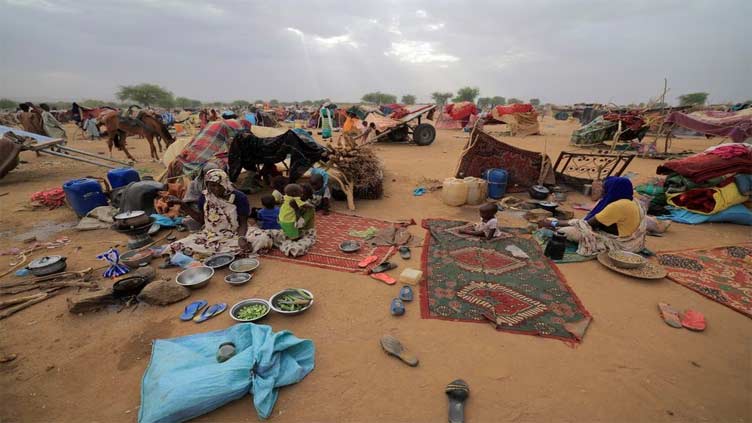Timeline: Sudan's 100 days of war between rival military factions

World
War displaced over three million people
KHARTOUM (Reuters) - A war that broke out in mid-April between Sudan's army and the paramilitary Rapid Response Forces (RSF) has devastated the capital Khartoum, caused a sharp increase in ethnically-driven violence in Darfur, and displaced over three million people.
The following is a timeline of major events since fighting began 100 days ago:
April 15 - After weeks of tensions building over a plan to hand power to civilians, heavy fighting erupts in Khartoum and clashes are reported in several other cities.
RSF forces loyal to Mohamed Hamdan Dagalo, better known as Hemedti, storm the residence of army chief General Abdel Fattah Al-Burhan, as they try to seize strategic sites in the heart of the capital.
April 16 - The U.N. World Food Programme says it is temporarily suspending operations in Sudan, one of its biggest programmes globally, after three of its staff were among aid workers killed in early fighting. The WFP says on May 1 that it is resuming work, alongside warnings that more than three million more people could slip into hunger and farmers may be unable to plant crops.
April 21 - The number of residents fleeing Khartoum accelerates as areas across the city are subjected to army air strikes, clashes, and looting by the RSF. Many seek refuge outside Khartoum and some head for Sudan's borders.
April 22 - The United States says special operations forces have evacuated all its embassy staff from Khartoum. France, Britain and other nations follow, leaving Sudanese worrying they will be left to fend for themselves.
April 25 - Ahmed Haroun, a former minister wanted by the International Criminal Court on charges he committed crimes in Darfur, says he and other ex-officials from ousted leader Omar al-Bashir's administration have walked free from prison.
Officials later confirm that Bashir, who is also wanted by the ICC, had been transferred to a military hospital before fighting began.
May 5 - More than 1 million polio vaccines intended for children have been destroyed as a result of looting, UNICEF says, following warnings that the provision of medical care and hospital capacity is collapsing as a result of the fighting. The WFP also reports extensive looting of its supplies.
May 20 - At talks convened by Saudi Arabia and the United States in Jeddah, Sudan's warring factions agree to a seven-day ceasefire designed to allow delivery of humanitarian aid. Violations of the deal by both sides are later reported, and aid agencies still struggle to deliver relief. The Jeddah talks are adjourned in June.
May 29 - The head of the U.N. refugee agency says estimates that one million people could flee Sudan by October may prove conservative, warning that arms and people trafficking could spread across a fragile region.
June 8 - The mobilisation of the powerful SPLM-N rebel force in South Kordofan raises fears of the conflict extending through Sudan's southern regions. Clashes in South Kordofan and Blue Nile states later cause residents to flee.
June 14 - West Darfur Governor Khamis Abbakar is killed hours after a TV interview in which he accused the RSF and allied militias of conducting genocide against non-Arab groups.
Thousands of civilians try to escape by foot to nearby Chad following his death but are targeted as they flee.
June 19 - International donors pledge $1.5 billion in aid for Sudan and the surrounding region at a fundraising conference in Geneva, about half the estimated needs for a deepening humanitarian crisis.
July 13 - Egypt begins a new mediation attempt between Sudan's rival factions at a summit for Sudan's neighbours in Cairo. Ethiopia's leader says the push should be coordinated with an existing initiative led by East African regional bloc IGAD, amid concerns about competing and ineffective diplomatic efforts.
July 14 - The U.S.-based Sudan Conflict Observatory reports that the RSF and aligned forces were suspected of the targeted destruction of at least 26 communities in Darfur.
A day earlier, the International Criminal Court said it was investigating violence in Darfur. The RSF says hostilities there are tribal.

